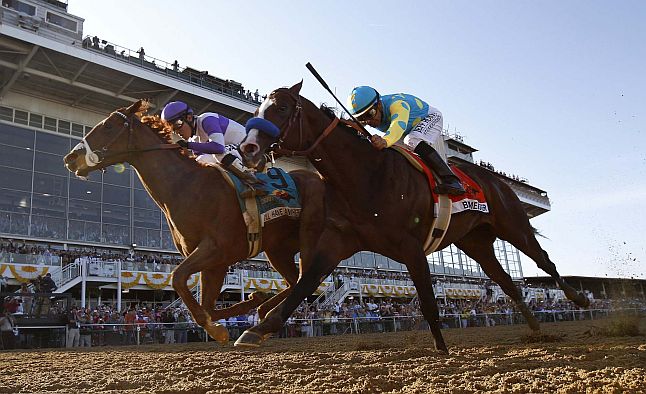
A horse track with a casino inside is called a racino and it has become a popular way for states and operators to introduce new casino gambling dens while resuscitating the flagging horse racing industry. Nebraska has jumped on the bandwagon but supporters on both sides agree that sometimes there can be too much of a good thing.
Contracting Expansion
As of this writing, there are six tracks in Nebraska including; South Sioux City, Omaha, Lincoln, Grand Island, Hastings, and Columbus, all of which are eligible for casino licenses due to three measures passed in 2020 to allow horse racing and casino gambling to coexist under one roof.
But since that time, seven additional tracks have been put on the table to also obtain horse racing, and by default casino, licenses with those locations having been reported as Norfolk, Bellevue, York, North Platte, Ogallala, Gering, and Kimball.
But now legislators are taking a second look at the possible explosion of casinos in the state which resulted in Legislative Bill 876, a proposal that would limit the number of new horse tracks whose sole purpose is to house casinos under their respective roofs.
State Sen. Tom Briese introduced the bill because, in his words during a public hearing, “I don’t think the public wants to see a casino at every exit on Interstate 80.”
The bill states that new horse tracks cannot be located within 50 miles of the nearest track and would mandate at least five racing days over the one day currently required. But Briese stipulated in an amendment to the bill that there should be a minimum of 75 miles between tracks, except in counties whose population is 100,000 or more, and 15 days of live racing should be offered.
Legislative Agreement
The bill has received bilateral support with Pat Loontjer, executive director of Gambling with the Good Life and an opponent of expanded gambling in Nebraska, and Lance Morgan, president, and CEO of Ho-Chunk Inc., an economic development wing of the Winnebago Tribe of Nebraska, both agreeing to the new restrictions except for the exemption of counties with populations of 100,000 or more.
“The casinos’ goal is to prey upon our citizens, and your job is to protect us”, Loontjer told the General Affairs Committee.
“Our goal is to create a powerhouse to compete with the facilities in Iowa,” Morgan said. “You shouldn’t tie the hands of the Omaha facility before we even get started.”
Morgan is referring to the recently planned Horsemen’s Park in Omaha that would already face stiff competition from its Iowa neighbors in Council Bluffs and Carter Lake. Allowing another Nebraska casino within 50 miles of the newly proposed Horseman’s Park in Omaha would put the new entity under further economic duress due to gambling dollars being diluted from Omaha to the proposed Bellevue track and casino.
Naturally, the proponents of the proposed Bellevue facility, John Hassett, and the city’s mayor, Rusty Hike, were none too happy with any tampering of the 100K or more population distance exemption as it would put the proposed quarter-horse track and casino, Belle Vue Downs, in jeopardy.
“Please don’t leave us at the post; give us a chance,” Hassett said.









